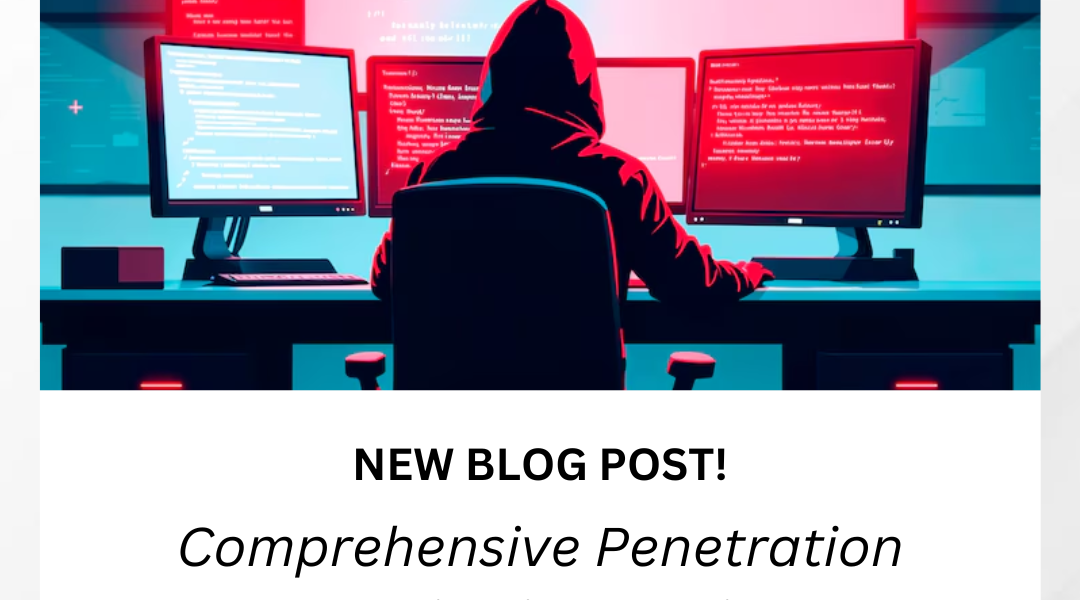Why Penetration Testing is Essential for Business Security: Unlocking Cyber Resilience
In today’s hyper-connected world, cyber threats are no longer a matter of “if” but “when.” With businesses rapidly migrating to digital platforms, the attack surface is wider than ever. That’s where penetration testing, also known as ethical hacking, becomes not just important, but indispensable.
What Is Penetration Testing and Why Is It Important?
Penetration testing is a controlled cyberattack conducted by security professionals to uncover vulnerabilities in your systems, applications, and networks before malicious hackers do. Think of it as a fire drill for your cybersecurity defenses. It is important because it prevents data breaches, ensures compliance, strengthens your overall security posture, and boosts customer confidence.
Why Businesses Need Penetration Testing
1. Safeguard Sensitive Data
Data breaches are costly—not just in dollars but in trust. Pen testing helps identify weak points before attackers can exploit them, protecting customer information, intellectual property, and business-critical data.
2. Ensure Regulatory Compliance
Industries like finance, healthcare, and e-commerce are governed by strict data protection laws. Regular penetration testing ensures your organization remains compliant with standards like PCI DSS, HIPAA, GDPR, and ISO 27001.
3. Maintain Business Continuity
Downtime from a cyberattack can be devastating. Pen testing ensures that your security posture is robust, helping to minimize the risk of service interruptions and ensuring operational continuity.
4. Strengthen Brand Trust
Customers and partners need assurance that their data is in safe hands. Demonstrating a commitment to cybersecurity through regular testing builds credibility and trust.
What Are the Types of Penetration Testing?
- Network Testing: Identifies vulnerabilities in wired and wireless infrastructure.
- Web Application Testing: Secures your online portals and APIs.
- Mobile App Testing: Protects user data and app integrity.
- Social Engineering: Tests human factors like phishing resilience.
- Physical Pen Testing: Assesses physical access controls.
How Is Penetration Testing Different from Vulnerability Scanning?
Vulnerability scanning is automated and identifies known issues. Penetration testing is manual, simulates real-world attacks, and evaluates the impact of those vulnerabilities.
What Tools Are Used in Penetration Testing?
Popular tools include:
- Metasploit
- Burp Suite
- Nmap
- OWASP ZAP
- Wireshark
How Often Should a Company Conduct a Penetration Test?
At least annually, and after major infrastructure changes or security incidents.
What Are the Phases of a Penetration Test?
- Planning and Reconnaissance
- Scanning and Enumeration
- Exploitation
- Post-Exploitation and Persistence
- Reporting and Remediation
Is Penetration Testing Legal?
Yes—if performed with proper authorization and defined scope.
What Certifications Are Good for Becoming a Penetration Tester?
- CEH (Certified Ethical Hacker)
- OSCP (Offensive Security Certified Professional)
- GPEN (GIAC Penetration Tester)
What’s the Difference Between Black Box, White Box, and Gray Box Testing?
- Black Box: No prior knowledge of the target system (external testing).
- White Box: Full access to systems and documentation (internal testing).
- Gray Box: Partial knowledge, simulating an insider threat.
What Industries Need Penetration Testing the Most?
- Finance
- Healthcare
- E-commerce
- Government
- Education
How Do You Become a Certified Ethical Hacker (CEH)?
- Take an accredited CEH course
- Gain hands-on experience in IT or security
- Pass the CEH certification exam
- Stay updated through continuous education
What’s Included in a Penetration Testing Report?
- Executive summary for stakeholders
- Technical findings with risk ratings
- Exploited vulnerabilities and attack paths
- Recommendations for remediation and patching
Can Penetration Testing Prevent Data Breaches?
Yes. By identifying vulnerabilities before attackers can exploit them, penetration testing serves as a proactive defense mechanism, significantly reducing breach risks.
What Are the Top Skills Needed for a Career in Penetration Testing?
- Deep knowledge of networking and operating systems
- Familiarity with popular security tools
- Strong analytical and problem-solving skills
- Programming and scripting (e.g., Python, Bash)
Why Penetration Testing is Essential for Business Security: Final Thoughts
Penetration testing isn’t just a checkbox for compliance—it’s a strategic investment in your company’s future. By identifying vulnerabilities before attackers do, businesses can avoid costly breaches, protect their reputations, and ensure long-term resilience in an evolving digital world.
Need expert penetration testing services? Contact us today for tailor solutions to meet your unique security needs.
Stay secure. Stay resilient. Stay ahead.


